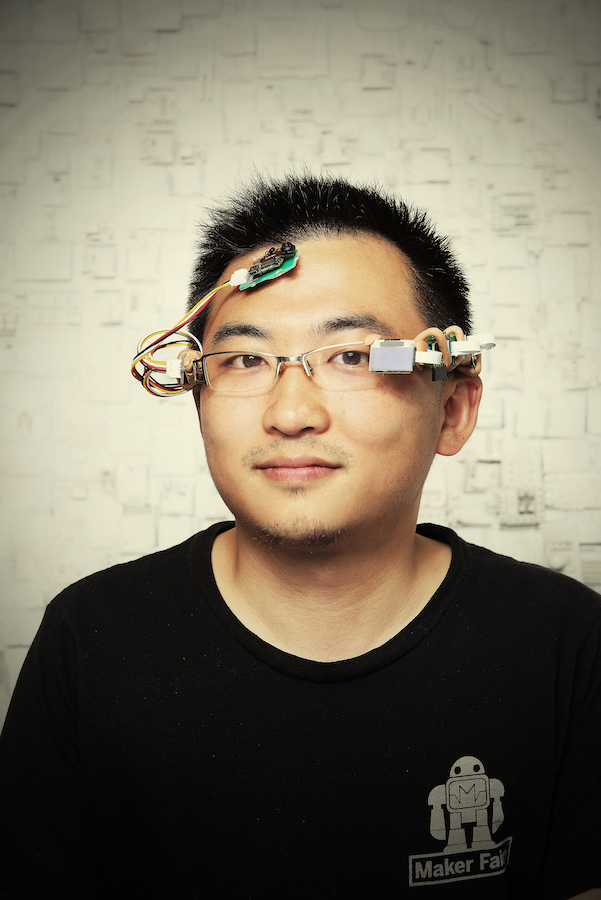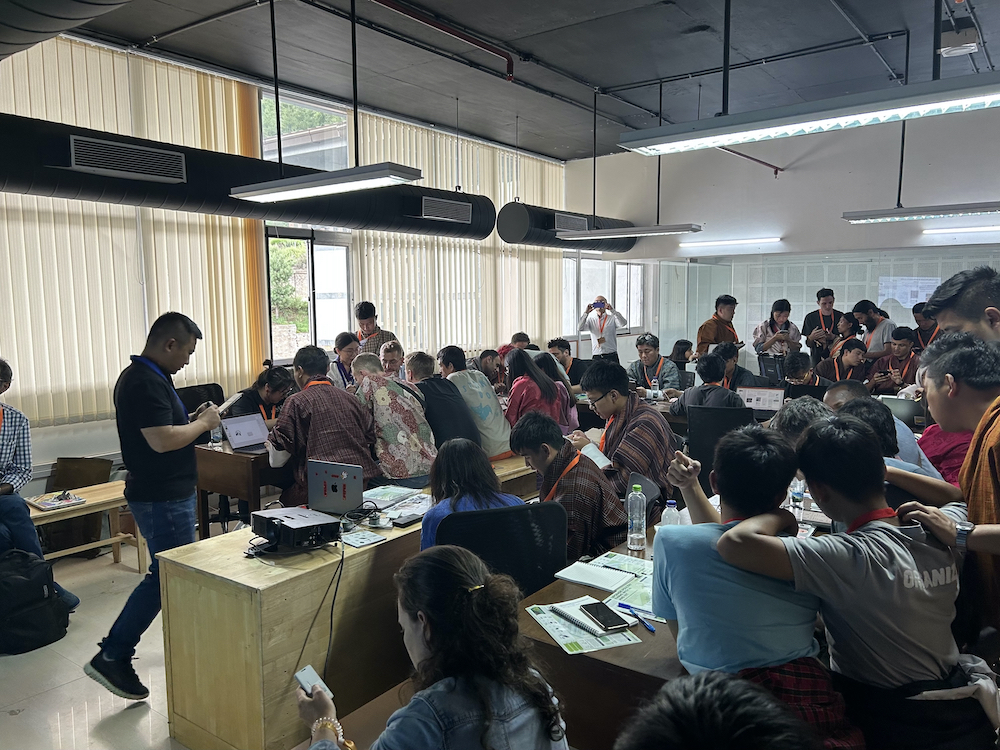Technology (R&D)
Eric Pan is a longtime member of the global Fab Lab community. He has been a committed partner in much of the work that we’ve done over the years in research, innovation, and entrepreneurship. He has also played a crucial role in supporting many of our educational programs.

The founder and CEO of Seeed Studio, Pan is dedicated to providing open technology and promoting innovation around the world. He is a maker, a doer, a teacher, a friend to all with a curious mind, and he appears to be in possession of a never-ending supply of productive energy and optimism. We managed to catch him during a brief intermission at FAB23 Bhutan to learn more about his story.
Fab Foundation: How did you first become involved with the maker movement? And how did that lead to your work with the Fab Labs?
Pan: I’ve been involved since I was at university, but we didn’t call ourselves “makers” at that time. I was an engineer by training, working on electronics and embedded systems. I worked for Intel on chipsets, and after about a year of performing somewhat repetitive tasks, I felt like I needed to go out and do something on my own. But I really didn’t know what I wanted to do.
One day, I encountered an art installation—I think it was the first interactive art exhibition in Beijing. People were using Arduino and Antronics to make art, which was really shocking to me. It was then that I saw how the maker movement was really lowering the barrier for people to use technologies beyond the engineering world, doing something more explorational. Since I was a trained engineer, I felt I could provide technical expertise and modules. That’s when I decided to join the movement.
In 2008, I started Seeed Studio. From the very beginning, what we did was provide open source hardware to makers all over the world. Then, we created a makerspace in 2011. I met Sherry and Neil in 2014, when they were preparing for the upcoming Fab Lab Conference in Shenzhen. Our makerspace soon became part of the Fab Lab network, and we began recruiting students for the first run of Fab Academy.
Since that time, you’ve become an invaluable member of the network—organizing the global community, providing components to prevent interruptions to education during the pandemic, and partnering directly with Fab Foundation on a number of other programs. In fact, you’re a key partner in FAB23 Bhutan. What excites you most about this event?
Bhutan is a real frontier for digital transformation. The lack of industrial foundation and commercial influences are a meaningful context for us to rethink alternatives—learning from sustainable mindsets, rather than building on top of consumerism. It is an honor for my team to work with local pioneers to understand real challenges and create practical solutions, thus igniting a sustainability-native tech ecosystem.
Thanks to the Fab Lab network and open source material, the tech barrier between cultures and regions is minimized. It’s fascinating to see how fast technology resources can travel to even the most remote regions; progress in Bhutan is a marvelous example! I'm super respectful of the Bhutanese people's approach to technologies.
I think it's perfect timing to start pioneering digital transformation in a region like Bhutan. And this event is such a wonderful chance to work with and learn from innovators from the whole planet—a great opportunity to exchange insights on shared critical topics like climate, economy, and culture from different perspectives and backgrounds. I’m proud to contribute something valuable in return for what we learn from others. I’m very encouraged, and my team has already begun thinking about next year's workshops.
Can you share a bit about what you’re planning for FAB24 Mexico?
There are many great ideas we’ve discussed, which we might want to amplify. For example, can we make a device to upgrade (almost) anything? Fab Labs could share the design and turn existing machines—tractors, elevators, ovens, generators, etc.—into more modernized digital ones, an easy upgrade of local industries without creating extra waste.
Or, can we make electricity? We might form micro-grids for carbon offsets, to power isolated dwellings, or for battery management. These could be low-hanging pervasive fruits that Fab Labs are capable of producing.
We may also look into hazard response. As some folks 3D printed masks during the COVID-19 pandemic, Fab Labs could become a source for local response to climate and economic hazards. This may even involve supply chains and logistics routed through local Fab Labs.
We’ve helped millions of makers around the world turn their aspirations into real projects. We’ve been working on more solutions surrounding agriculture, energy, and transportation, among others. Ultimately, we want to keep exploring how to bring people from possibility to productivity.
In addition to being a Keynote Speaker during our Technology (R&D) Symposium, Eric Pan—along with his colleague Violet Su—hosted a pair of cutting-edge and deeply engaging workshops at FAB23, which attracted a capacity crowd:
Understanding and Building an Advanced Perception System - a journey to understand the importance of data, learn accurate collection methods, and build an advanced perception system for creating a more resilient future
How to Add Machine Learning to Almost Anything - an exploration of machine learning applications on a very popular embedded AI device: Seeed Studio XIAO ESP32S3 Sense, a tiny yet powerful tool to get started with intelligent voice and vision AI

We feel truly privileged to have such a generous and enthusiastic partner in this important work. We can't wait to see what Seeed Studio has in store for us at FAB24 Mexico!